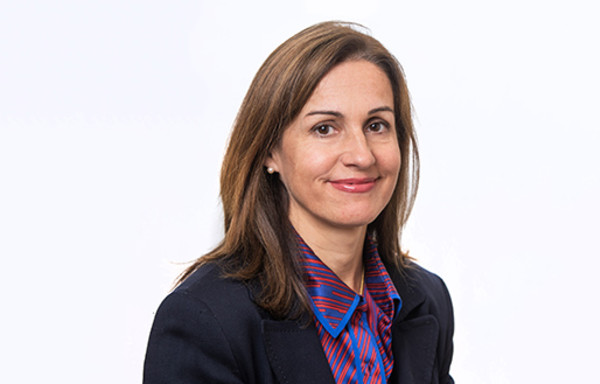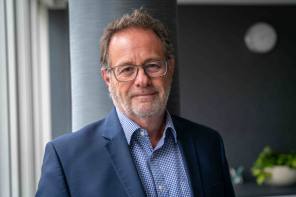

When Gabrielle Boyle arrived in London in 1990, the City was a very different experience for both Irish people and for women starting in fund management.
And the range of investment issues that mattered to clients and their advisers have evolved in that time as well.
In 1990, the Berlin Wall had just fallen, new markets were opening up and the inflation that had been the scourge of investors during the preceding 20 years was receding into the past, heralding a period of strong economic growth – something that lasted right up until the global financial crisis in 2008.
But for Boyle, who began at Lazard Asset Management, despite all of the changes in the world since she began investing, her approach has not changed now that she is at Troy many years later.
She says: “When I was starting out, I could see all of this disruption in geopolitics, but also, in those times, before the euro currency existed, one of the major things we obsessed about every day was currency movements in Italy or Germany. But what that period of time taught me was there were certain companies that seemed to progress and grow no matter happened, so I began to focus on those, and still do that now.”
Boyle runs the £450m Troy Global Equity fund, and is also a member of both the executive committee and the board of directors of Troy Asset Management, a business with £15bn assets under management.
That AUM figure places Troy a long way behind the behemoths of the industry, but the experience of working for such a business came right at the start of her career at Lazard.
Of the contrasting experiences she says: “Working in a smaller team is very liberating. I joined Troy 10 years ago when they had a small fund they wanted to make global. I had been at Lazard for 12 years and was a managing director, but at a smaller firm, where the entire investment team is 14 people, I can just get on and manage the money in a sensible way, and in the way the firm wants.
"I think managing money for people is one of the greatest jobs in the world, and being at a smaller firm allows me to concentrate more on that."
Troy was founded by Sebastian Lyon and others at the instigation of Lord Arnold Weinstock, at the time one of the UK’s wealthiest people who was looking to create a business to manage his personal wealth. Weinstock had been chief executive of GEC and was criticised by some market participants for an overly cautious style. This has subsequently been mirrored by Troy, a business with a range of funds all run with “capital preservation” at its core.
The fact there is one over-arching investment style, says Boyle, means that as a smaller business in a world where the industry is increasingly consolidating, Troy can compete.
She says all of the investment managers can discuss all ideas and this pooling of ideas means they can achieve more than the sum of their parts.
Boyle adds that Troy has also probably reached the level where it is large enough to be able to navigate what she believes is the increased complexity in the industry since she entered it in 1990.
She is very measured when discussing the investment process at Troy, but more animated on how the industry has changed, or failed to change. In addition to her role at Troy, Boyle is also on the board of the Witan Investment Trust.
Diverse thinking
Boyle says there are fewer women fund managers now than when she began her career.
“When I began I had two very strong female role models, but it is harder to see those now. I think I have had a wonderful career, still have a wonderful career, and I have been able to have four children and have a career, I think it is a great industry to work in.
"I actually think being an Irish person working in the City and being a woman in the City has given me a bit of an advantage, as there is an outsider’s perspective which can be useful.”
Boyle says one of the issues is the relatively low number of women who apply for jobs in financial services. She says only about 25 per cent of applicants are female.
She notes the global financial crisis “really harmed the industry in terms of getting more diverse voices into it, and the science exists that shows that more diverse teams achieve better outcomes. At Troy we have hired some established fund managers in recent years, but we also have an intern programme, and we are very determined to have a team in all functions of the business that has a lot of cognitive diversity. That is very important”.
In terms of how she sees markets right now, at a time of profound turbulence, she says: “When I started in 1990, [environmental, social and governance considerations] more generally were not really something people spoke about.
"My view is that, quite simply, those firms that care about more than just the interests of the shareholder – so they care about the people they employ, they care about their suppliers and supply chains – I think those things matter to the new generations, and actually the companies which care about those things will be the winners in future, so we have integrated that into what we do.
"I know there is a lot of cynicism around ESG, but I think with us it goes back to the founding of the company by Weinstock.”
The fund style deployed by Troy is one that is often called 'quality', and after a period of profound success it has come under pressure in recent months as investors switch to more economically sensitive areas.
Boyle says that while the characteristics that define a “quality” company have not really changed since she began, they are “usually associated with businesses like consumer staples, but actually in the modern world there are other places where you can find them, for example in areas such as medical technology. And we can certainly be a lot more fussy now than in the past about what we buy”.
David Thorpe is special projects editor of FTAdviser



